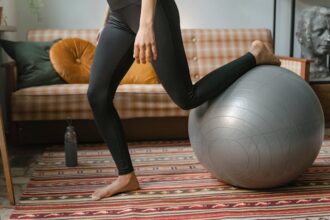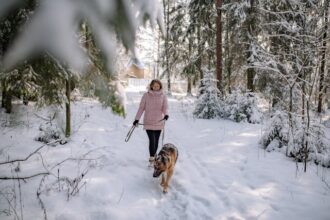Recent findings from The Irish Longitudinal Study on Ageing (TILDA) at Trinity College Dublin have underscored the advantages of frequent dog walking for older adults. Published in the Journals of Gerontology, the research indicates that seniors who walk their dogs at least four times a week benefit from improved mobility, reduced fear of falling, and fewer unexplained falls. This revelation sheds light on an area lacking extensive research, suggesting that dog walking could help prevent mobility issues and falls later in life.
The study aimed to evaluate whether regular dog walking correlates with a reduced likelihood of experiencing falls, a decreased fear of falling, and fewer mobility issues among a broad group of community-dwelling older individuals. Falls are the most common reason older adults end up in hospital and are the leading cause of accidental death in this age group. They are also strongly linked to serious injuries such as hip fractures, which can lead to a loss of independence, increased healthcare usage, admissions to nursing homes, and earlier mortality. With about 30% of Irish individuals aged 70 and over falling annually and one in eight needing emergency department services due to a fall, identifying effective preventive strategies is increasingly critical as the population ages.
The study’s methodology involved participants who were 60 years or older during the fifth wave of TILDA. Those who reported walking their dogs at least four days per week were classified as regular dog walkers. At the same time, the comparison group consisted of individuals who either did not own a dog or did not walk their dog regularly. Mobility was assessed using the Timed-Up-and-Go (TUG) test and falls, and fear of falling were self-reported. Logistic regression models evaluated the associations between regular dog walking and various health outcomes.
Key findings from the study included significant benefits for regular dog walkers: they completed the TUG test notably quicker than non-dog walkers, indicating a lower probability of falls. Additionally, they were 40% less likely to experience unexplained falls and 20% less likely to report fear of falling. These statistics highlight how regular dog walking can significantly enhance the mobility and safety of older adults.
The study highlights the physical benefits of regular dog walking and its role in promoting social interaction and mental well-being, which are essential for maintaining independence in old age. Professor Robert Briggs, a co-author of the study, emphasized the multifaceted benefits of dog walking, noting that the activity likely provides increased physical activity, social interaction, companionship, and a sense of purpose. Dr Eleanor Gallagher, the lead author, also pointed out the mental health benefits and increased confidence that regular dog walking can bring to older adults, making it a valuable activity for physical and psychological health later in life.
More information: Eleanor Gallagher et al, The Association of Regular Dog Walking with Mobility, Falls and Fear of Falling in Later Life, Journal of Gerontology. DOI: 10.1093/gerona/glaf010
Journal information: Journal of Gerontology Provided by Trinity College Dublin








